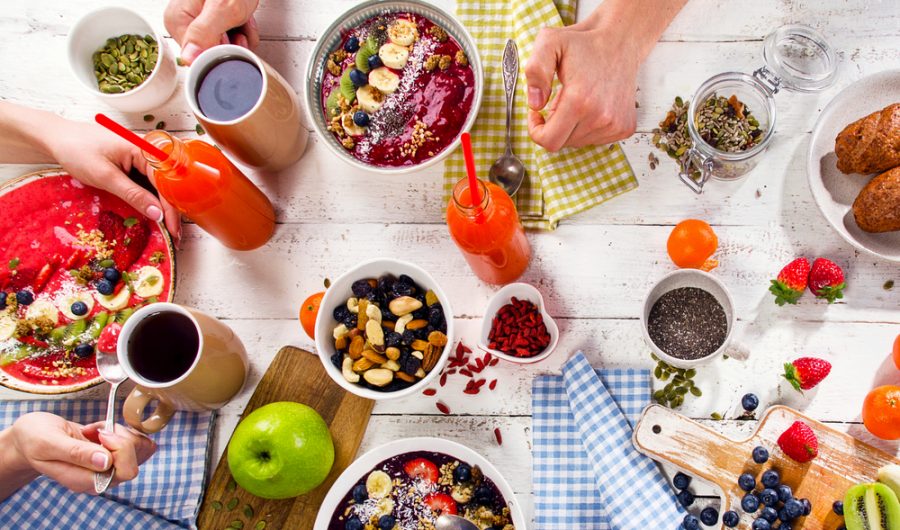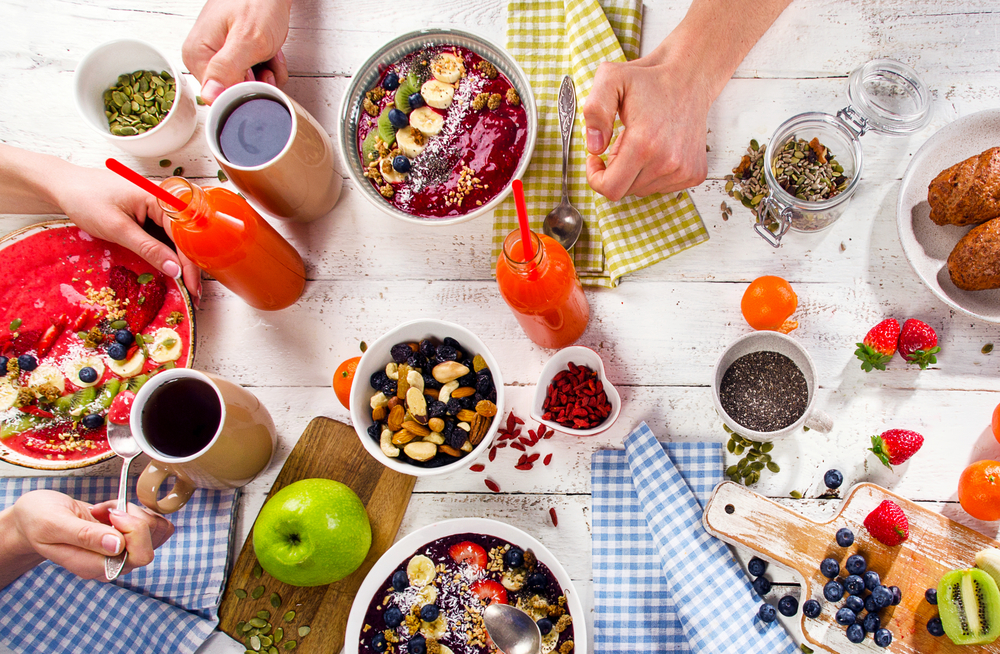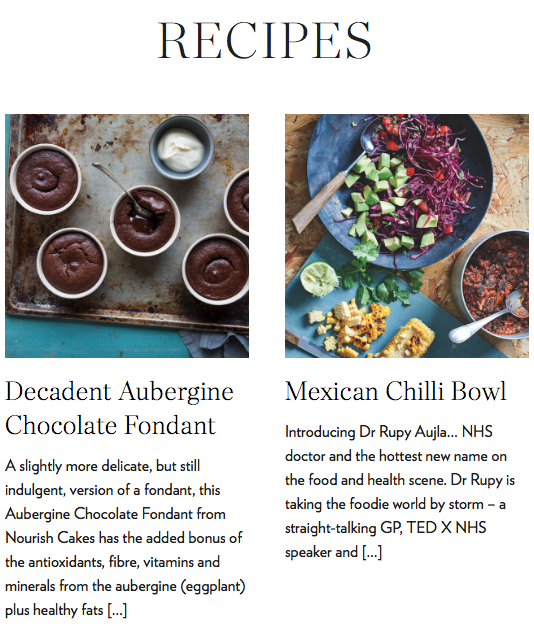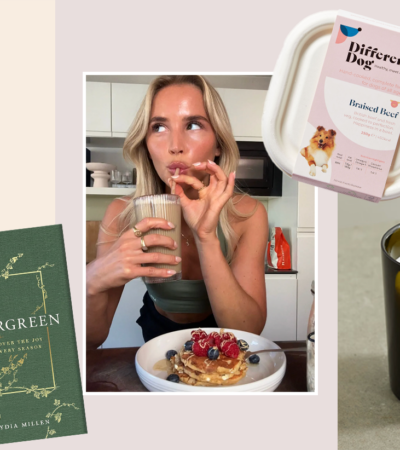Us Hip & Healthies are continuously striving for the perfectly balanced diet. Whether it be with green smoothies, coconut oil, veggies disguised as carbs (think courgette spaghetti & cauliflower rice- both revolutionary!) or South American superfoods whose name we can’t pronounce, we search and seek foods that are going to make us look and feel younger, leaner and more glowing! But what we also need to consider is that our nutritional needs change as we get older. Our lifestyles evolve, our bodies beautifully mature, and we experience natural ageing changes in our hormones, our skin, our brain and our digestion. All of this can all be supported through the foods we eat. To understand how, let’s take a decade at a time and look at our body’s nutritional needs….
Our 20s
Working hard and playing hard, our adrenal glands (little but highly important glands that sit on top of our kidneys and handle our body’s response to stress) are being pushed to their limits. A reliance on sugar, caffeine and stress-driven adrenaline, combined with lack of sleep, only further exacerbates this. To support these overworked glands we can enrich our diet with the nutrients that they use to function: the B vitamins, vitamin C and magnesium. These nutrients can become depleted by both stress and alcohol, so the harder we work and/or party, the greater the demand!
80% of the vitamin C used in our body is in the functioning of our adrenal glands, and as our body can’t store vitamin C, we need to be constantly topping up our levels. We can boost the vitamin C in our diet by eating plenty of green leafy vegetables, peppers, kiwis, cauliflower, citrus fruits, berries and baobab powder (fantastic in smoothies!). For particularly stressful times, or when we’re feeling a bit run down, a daily vitamin C supplement may also be beneficial.
As well as providing support for our adrenals, the B vitamins are vital for energy production, keeping the brain sharp, and helping our livers to detoxify when we’ve had one drink too many! We can get them from wholegrains, eggs, pulses, nuts, seeds, maca and spirulina.
Chronic stress depletes the body of magnesium, and the lower we are in magnesium, the more reactive we become to stress – it’s a viscous cycle! In addition to this, magnesium has an important role to play in hormone balance, and some research suggests that low levels can worsen PMS-related bloating, headaches and sugar cravings. Green leafy vegetables, nuts, seeds, and the occasional square of dark chocolate pack a serious magnesium punch.
Our 30s
Life certainly hasn’t slowed down; in fact it has likely sped up juggling stressful careers, busy social lives and for many of us, families. If you’re trying for a baby, taking dietary steps to boost fertility is important for both women & men (so your partner needs to listen up here too!). In fact a 2012 study found that just 1 in 4 men have optimal sperm quality. Certain antioxidant nutrients have been found to have an important role in fertility, particularly selenium (Brazil nuts, mushrooms, garlic and broccoli), zinc (shellfish, pumpkin seeds, almonds) and vitamin E (seeds, nuts and avocado). Pregnant women and those planning to get pregnant are also recommended to take 400 micrograms of folic acid, and boost intake of folate-rich green leafy vegetables such as kale and spinach.
We may be beginning to worry about ageing, and starting to spot, surely they’re not, wrinkles?! Face-saving, antioxidant-rich vegetables such as asparagus, avocado, broccoli, celery, onions, garlic and tomatoes can help to keep the skin smooth and supple. So too can dietary sources of vitamin C and zinc, which are both vital for the production of skin-structural collagen.
Our 40s
As we enter our 40s, our metabolism naturally starts to slow down (even though we’re definitely not!) and we may find that we can’t quite keep the weight off like we used to. The stress hormone cortisol can also contribute to a “spare tyre” of fat accumulating around the middle, increasing risk of chronic disorders such as heart disease and Type 2 diabetes. Omega 3 fatty acids play a crucial role in boosting the metabolism and helping the body to burn fat. These can be found in oily fish (sardines, mackerel, salmon), walnuts, chia and flaxseeds. Ensuring a good night’s sleep is also essential for appetite control and weight management, and this can be aided by getting a good intake of the “calming” minerals calcium and magnesium.
A slowed metabolism can also affect digestive function, and if digestion is starting to feel a bit sluggish, a good intake of fibre in the form of fresh fruit, vegetables and pulses will help to regulate the appetite, support the liver and keep everything moving. Naturally probiotic foods such as sauerkraut and miso can also help to restore balance in the digestive tract.
Our 50s & above
Declining levels of the hormone oestrogen can be supported by boosting our intake of dietary phytoestrogens. These are naturally-occurring compounds found in certain foods that can mimic the effect of oestrogen at low doses, and may help to ease pre-menopausal symptoms. The main food sources are soya and flaxseed, and their derivatives. Other foods such as nuts, seeds and some herbs also contain phytoestrogens, although in relatively low concentrations. Adding ground flaxseeds to smoothies, or sprinkling them over porridge or granola is a fantastic way to enrich your diet with these phytoestrogens each morning!
Our bodies produce glucosamine to repair cartilage and other tissues, but as we move into our 50s, we start to produce it at a slower rate, which in some individuals can lead to a gradual deterioration of the joints. There is evidence to suggest a glucosamine-based supplement may help, whilst we can also boost our intake of the antioxidants vitamin A, C, E and selenium. These nutrients are also vital for supporting our immune system, which starts to gradually weaken with age. Maximize fruit and vegetable intake and variety by thinking in colour- the deeper the colour, the greater the antioxidant content!
words by Naomi Mead
Feeling inspired? Check out our Recipe Corner and get cooking!















